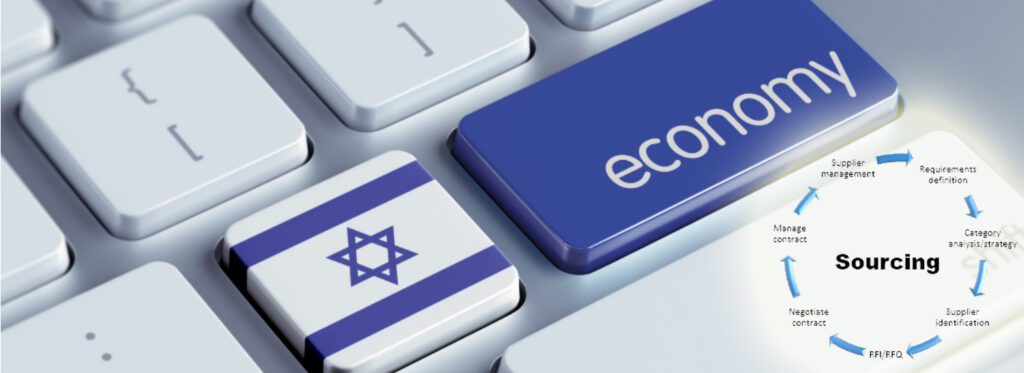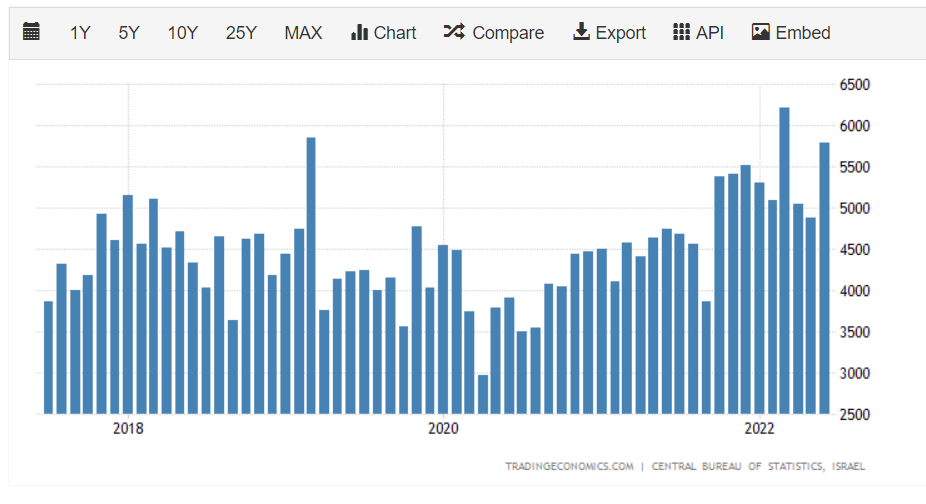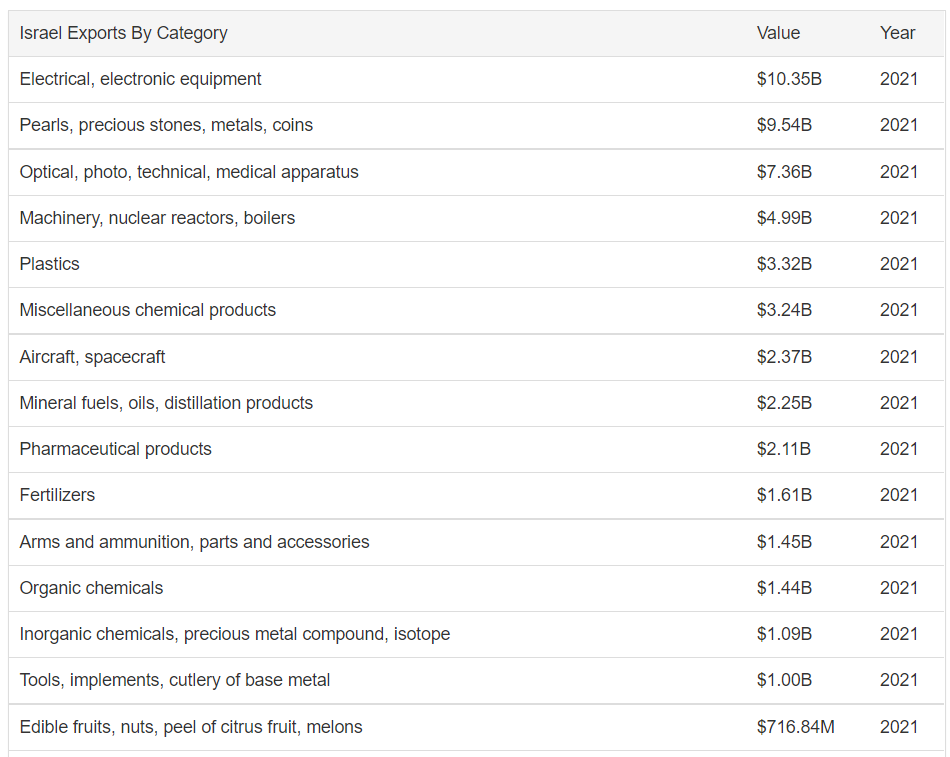Israel

Israel is a country with high commercial potential as it has extensive Free Trade Agreements with many G20 countries, especially the EU and the USA. Israel is an important supply center for companies that want to supply products such as raw materials, agricultural products, high-tech devices, machinery, and equipment. The fact that companies that will trade with Israel work with a sourcing partner ensures that the import processes, especially from small-scale companies, proceed faster and without any problems. Collaborating with a sourcing company that dominates the local market in order to find the most suitable suppliers in the Israeli market will prevent both waste of time and bad surprises in supplier selection.
Israel Demographics:
⦁ Population 9.14 million
⦁ Language Hebrew and Arabic
⦁ Area 20,325 km²
⦁ Capital Jerusalem
⦁ Major Cities Tel Aviv, Beersheba, Haifa, Ashkelon
⦁ Form of Government Parliamentary Democracy
⦁ Currency Shekel (NIS)
⦁ Free Trade Agreements:
⦁ EU, EFTA, MERCOSUR countries, USA, Turkey, UAE, South Korea, Jordan, Mexico, Canada, Colombia, Panama, Ukraine, UK

Overview Israel
Israel, which has a liberal investment system, is open to domestic and foreign private investors. It is the 16th country that receives the most foreign investment; The main investment partners are the USA and the Netherlands. Strong R&D and a skilled and multilingual workforce are essential factors that make Israel attractive for foreign investments. The high-tech sector, especially start-ups, attracts large amounts of foreign investment. At the same time, Chinese investment in Israel has also increased rapidly in recent years, particularly in software, IT services, and consumer electronics.
Israel realized 90.2 billion USD imports and 59.8 billion USD export in 2021. Israel, whose nearly half of its exports consist of technology products, has focused its economic development priorities on advanced technology products. It is a crucial exporter, especially in agricultural technologies.
Israel Foreign Trade Legislation (Import – Export Regime)
By following an open economic policy, Israel signed trade agreements with some economic institutions and developed countries in order to meet its raw material needs most advantageously and cheaply. –
Israel has had a Free Trade Agreement (FTA) with the EU since 1975; In 1995, the STA was renovated and expanded. Besides our country, Israel has Free Trade Agreements with the USA, EFTA (Iceland, Liechtenstein, Norway, Switzerland) countries, Jordan, Egypt, Canada, Mexico, and MERCOSUR countries (Argentina, Brazil, Uruguay, and Paraguay).

Israeli Economy Key Sectors
The most developed sectors of the Israeli economy are diamond processing, informatics, defense industry, medicine, health tourism, and religious tourism. Israel focuses its economic development priorities on high-tech products. Agriculture has 2%, industry 29%, and services 69% of GDP.
Israel is a country with a deficit in goods trade in general and a surplus in services. The defense industry, diamond processing, and IT sector are important export items. Israel has a surplus in service revenues, especially in the sectors of informatics, health tourism, and religious tourism.
Israel Strategic Market Entry Criteria
The government supports foreign capital in Israel; domestic and foreign investors are subjected to equal conditions. Foreign direct investments in Israel are mainly related to information technologies, communication technologies, health, cleaning technologies, water, and agricultural technologies. It is estimated that around 20 billion dollars of foreign investment entered the Israeli market in 2019.
Technology-intensive industries such as electronics, communications, medical and optical instruments have made significant progress in Israel over the past ten years. The country’s high education level and significant investments in R&D activities related to defense, information technologies, agricultural technologies, and medical technologies are accepted as an indicator of the sustainability of these developments in the region.
Supply from Israel: Sourcing
Suppose you are going to import from Israel or trade with Israeli companies. In that case, it may be advantageous to cooperate with companies that provide services such as sourcing and procurement. Imagine you’ve identified a supplier in Israel.
A sourcing partner can support you in all matters, including supplier communication, sample request, business visit, negotiation, trial orders, inspection, shipping, document control, and customs clearance. Working with sourcing companies that dominate the Israeli market is important to avoid language problems, especially if you are going to work with small companies
